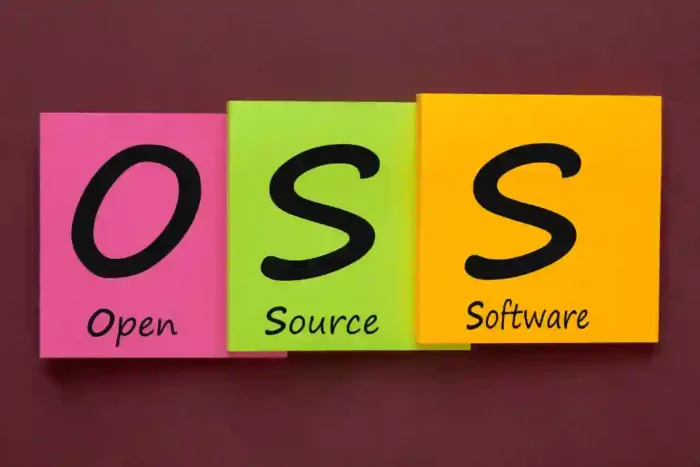Not so long ago, software developers operated out of silos, working to perfect their code in isolation until it was marketed as the final product to the audience. Software developers loved secrecy and protected their source codes with a passion as they wanted to stay ahead of the competition. However, the era of rapidly evolving software and agile techniques has led to more open sourcing of the software industry.
First, let’s discuss what open-source software really is and how it changes how we think about coding and protecting the source code of our applications. Open source code refers to source code that is publicly available to anyone. Developers use this source code to modify and even improve software and tailor it according to what suits their needs and requirements best. This sometimes might even involve fixing bugs in order to make software function properly and binary analysis tools might have to be used for code reviews, security assessments, and determining code quality. Software like the Apache Web Server, LibreOffice, Linux, and SugarCRM are all examples of open-source software.
It differs from other exclusive kinds of software; typically known as closed-source or proprietary software. A proprietary software’s source code is not publically available and is in the hands of the individual or organization that created it. This makes it only for the creators to make modifications if need be and doesn’t permit anyone else to alter or modify it. In most cases, users are made to agree to certain terms and conditions so that they cannot make any changes or distribute the software.
The Benefits Involved With Open Source Software:

Source: pinterest.com
Open-source software can also be integrated as components when developing other applications. As a matter of fact, it has proven to be cost-effective, with a strong element of collaborative work that enhances creativity and innovation and leads to greater flexibility in rolling out software. Promoting transparency, security, and community-driven development is revolutionizing traditional software practices.
These days, open-sourcing your software has become a common marketing and technical ploy. It leads to greater collaboration between coders and its community of freelance developers whose insights often lead to better and more elegant code.
This article explores the profound impact that open-sourcing your software can bring in software development. It highlights its transformative effects on collaboration, customization, and the overall landscape of technology, and how it is benefiting the software industry as a whole.
Collaboration and Innovation:
The most obvious advantages of opting for open-source software are the coding community’s increased collaboration and collective innovation efforts. Developers from diverse backgrounds and different regions gather to solve a single problem; to make the source code elegant, simple, and highly functional. With the help of such varied skill sets, the software developed can adhere to the highest quality of coding and provide innovative solutions to difficult problems. This collaborative approach allows for rapid development and continuous improvement of software projects.
Cost Savings:

Source: pinterest.com
The biggest advantage of open-source software is the elimination of expensive software licenses that would be otherwise required if your software is not open-sourced. It significantly reduces costs for individuals, businesses, and organizations, making software more accessible and affordable. The savings in licensing costs can be utilized in improving the code further and making it more developer-friendly. Consequently, it also allows developers to integrate open-source software as components in an application they’re building; as opposed to creating fully bespoke modules from scratch.
Customization and Flexibility:
Open-source software allows modifying and customizing the source code according to specific needs. This flexibility allows developers to tailor the software to suit their requirements, enabling greater adaptability and functionality. It ultimately leads to better software development and increasingly efficient coding practices for the masses.
Security and Transparency:
Open-source software undergoes enormous amounts of peer review, making the code highly transparent. Despite the security concerns highlighted by many, this transparency generally leads to more security in most cases, as vulnerabilities and bugs can be identified and fixed quickly by a large community of developers. Additionally, you get the advantage of having your software tested by the software community for its integrity and trustworthiness.
Community Support:
Open-source software projects often have active and vibrant communities of developers and users. The community offers much-needed support and guidance regarding documentation and helps developers troubleshoot emerging issues. Moreover, the knowledge sharing occurring as a result of open-source software leads to a shared body of knowledge enhancing the coding of the programs.
Economic Opportunities:

Source: freepik.com
Open-source software has led to increased economic opportunities that organizations and individuals can take advantage of. Companies can easily use open-source software to build new custom applications for their organization, thereby reducing development time and costs. Additionally, a thriving open-source ecosystem has led to the emergence of support services, consulting, and training, providing job opportunities and stimulating economic growth. It’s also one of the reasons that has enabled software services to be pushed beyond geographical boundaries and encourage collaboration from all parts of the globe.
Education and Learning:
Open-source software encourages learning and knowledge sharing. Students, developers, and aspiring programmers can access and study high-quality software code, enabling them to understand best practices, coding techniques, and industry standards.
Open-source software is revolutionizing the software industry by increasing collaboration among coders. It also leads to a reduction in developing costs and time taken to produce quality software applications. The transformative influence of open-source software on the industry is there for all to see. It has become the real influence behind innovation and out-of-the-box thinking adopted by coders these days.
The transparent and community-driven approach has improved software quality and security, empowering individuals and businesses with greater customization and flexibility. The future of the software industry is open-sourced software that will be the driving force behind future innovations and encourage a collaborative environment for technology development. Therefore, it is inevitable that software developers will embrace the much-advertised benefits of open-source software and continue on this path to innovation.




